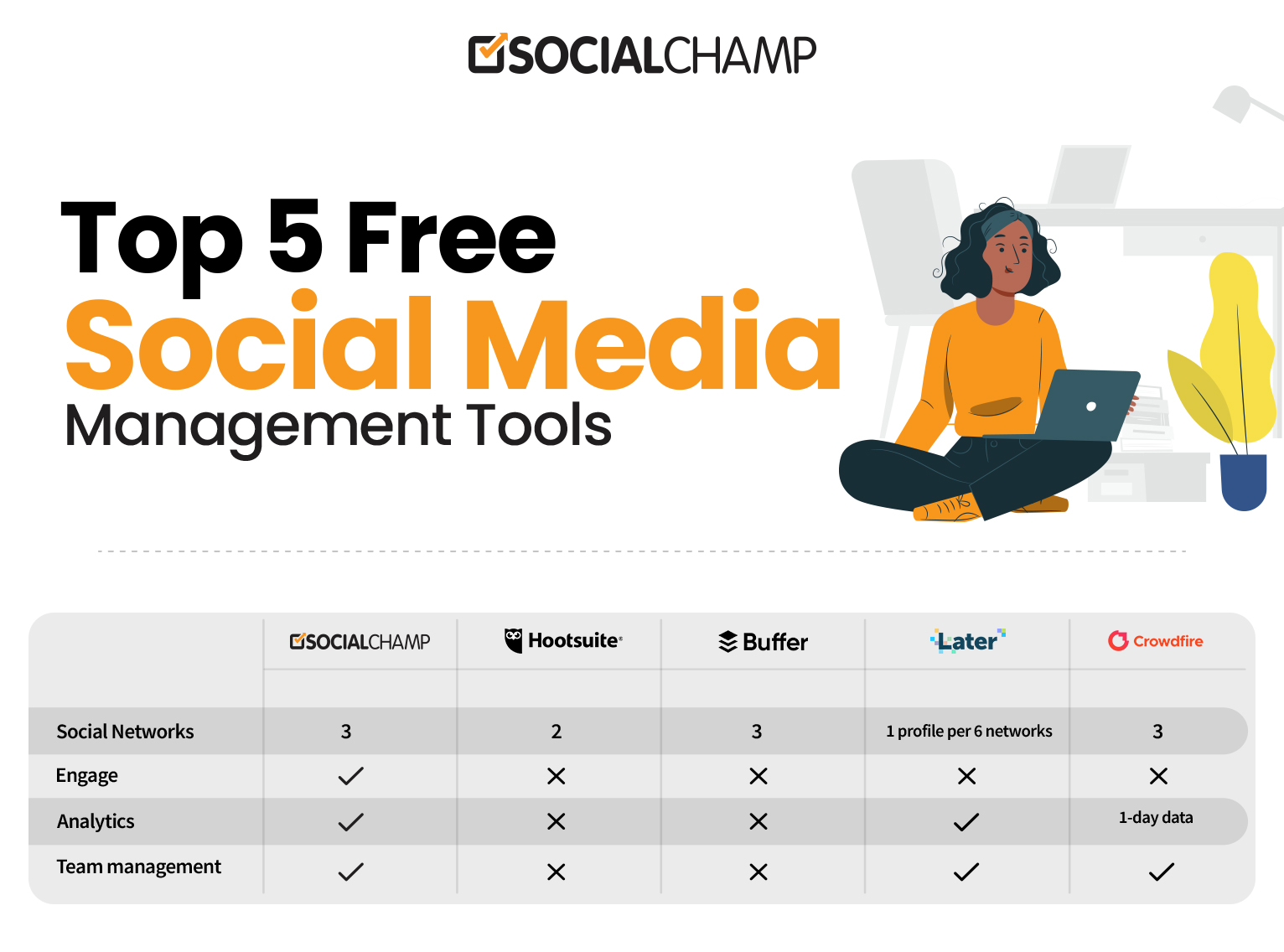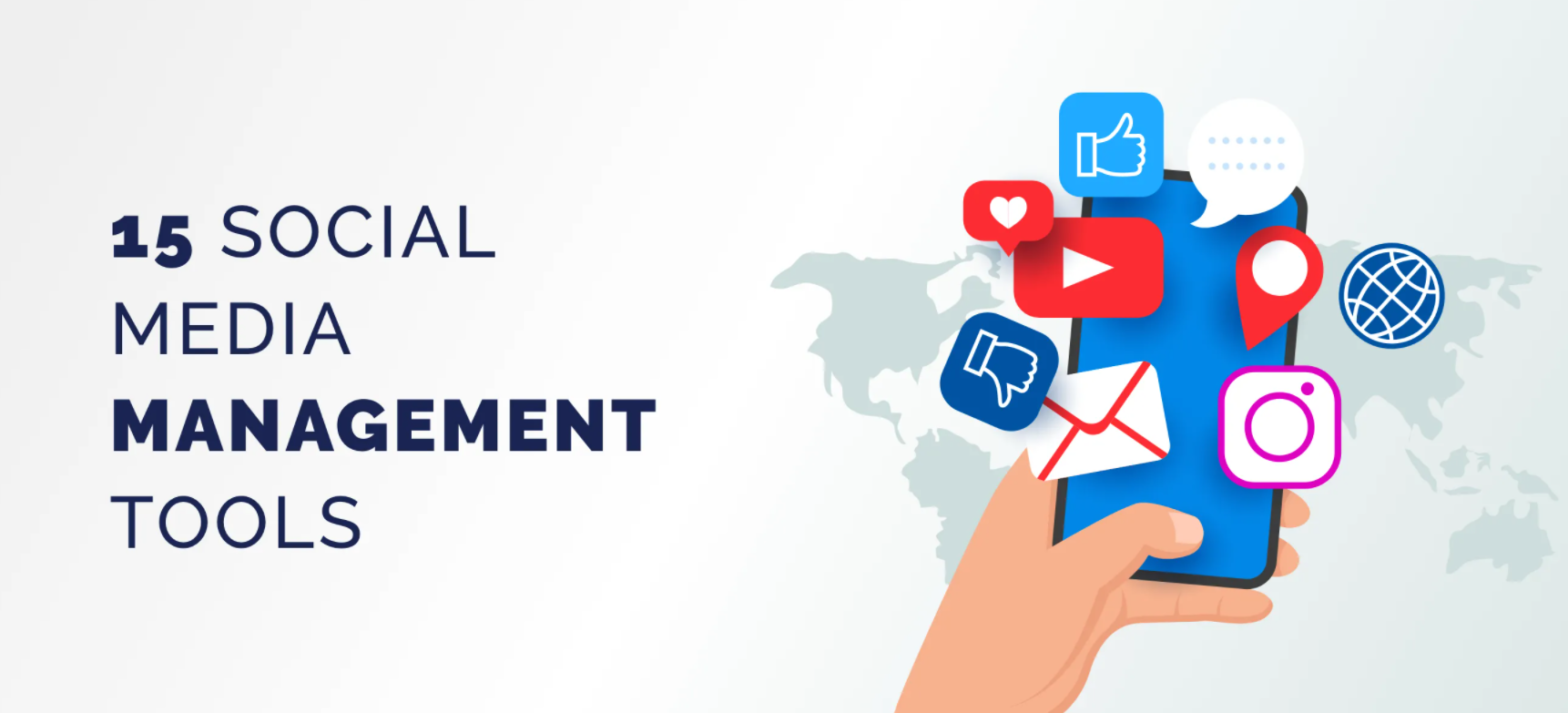In the realm of digital marketing, social media management tools have become indispensable for businesses striving to navigate the ever-evolving landscape of online engagement. This article delves into the intricacies of these tools, shedding light on their diverse functionalities and the impact they have on a brand's online presence.
As we journey through the following sections, you will gain valuable insights into the types, benefits, key features, and trends of social media management tools, equipping you with the knowledge needed to make informed decisions for your social media strategy.
Types of Social Media Management Tools
Social media management tools are essential for businesses and individuals looking to streamline their social media presence. These tools offer a wide range of functionalities to help manage, monitor, and analyze social media activities effectively.
Scheduling Tools
Scheduling tools allow users to plan and schedule posts across various social media platforms in advance. Key features include content calendar, post automation, and post optimization. Popular examples of scheduling tools include Hootsuite, Buffer, and Sprout Social.
Analytics Tools
Analytics tools provide insights into the performance of social media campaigns and content. They offer metrics such as engagement, reach, and conversion rates to help users understand their audience better. Examples of analytics tools include Google Analytics, Socialbakers, and Brandwatch.
Monitoring Tools
Monitoring tools track mentions, comments, and conversations about a brand or across different social media channels. They help users monitor their online reputation and respond to interactions in a timely manner. Common monitoring tools include Mention, Brand24, and Talkwalker.
Benefits of Using Social Media Management Tools

Using social media management tools can provide numerous benefits to individuals and businesses looking to enhance their online presence. These tools not only help in saving time and effort but also play a crucial role in automating tasks, improving engagement, and expanding audience reach.
Time-Saving and Effortless Management
Social media management tools streamline the process of creating, scheduling, and publishing content across multiple platforms. By allowing users to manage all their accounts from a single dashboard, these tools help in saving time and effort that would otherwise be spent on manual posting and monitoring.
Automation for Enhanced Social Media Presence
Automation features in social media management tools enable users to schedule posts in advance, monitor conversations, and analyze performance metrics automatically. This not only ensures a consistent online presence but also frees up time for users to focus on creating engaging content and interacting with their audience in real-time.
Impact on Engagement and Audience Reach
Social media management tools offer insights into audience behavior, preferences, and demographics, allowing users to tailor their content and engagement strategies accordingly. By analyzing data and trends, users can optimize their campaigns to maximize engagement and reach a wider audience effectively.
Successful Campaign Examples
Many successful social media campaigns have been aided by the use of management tools. For example, Buffer helped Airbnb increase their social media engagement by 300% by providing scheduling and analytics features. Similarly, Hootsuite assisted Domino's Pizza in launching creative campaigns that boosted their online presence and customer engagement significantly.
Key Features to Look for in Social Media Management Tools

When choosing a social media management tool for your business, it's crucial to look for key features that will help streamline your social media marketing efforts and maximize your results. Here are some essential features to consider:
Scheduling
- Allows you to plan and schedule posts in advance, ensuring a consistent online presence.
- Enables you to reach your audience at optimal times for engagement.
- Helps maintain a steady flow of content without manual intervention.
Analytics
- Provides insights into the performance of your social media campaigns.
- Allows you to track key metrics such as engagement, reach, and conversion rates.
- Helps you make data-driven decisions to improve your social media strategy.
Monitoring and Listening
- Allows you to monitor brand mentions, comments, and messages in real-time.
- Helps you respond promptly to customer inquiries and feedback.
- Enables you to stay informed about industry trends and competitor activities.
Reporting
- Generates detailed reports on the performance of your social media channels.
- Provides valuable insights for assessing the effectiveness of your social media strategy.
- Helps you demonstrate the ROI of your social media efforts to stakeholders.
Integration Capabilities
- Ability to connect with multiple social media platforms such as Facebook, Twitter, Instagram, LinkedIn, etc.
- Ensures seamless management of all social accounts from a single dashboard.
- Facilitates cross-platform posting and sharing for broader reach and engagement.
User-Friendly Interface
- Intuitive and easy-to-navigate interface for smooth operation and workflow.
- Reduces the learning curve for new users and enhances overall usability.
- Ensures efficient use of the tool without the need for extensive training or technical support.
Choosing the Right Tool
- Assess your business needs and goals to determine which features are most important for your social media strategy.
- Consider your budget and select a tool that offers the best value for your investment.
- Take advantage of free trials or demos to test out different tools before making a decision.
Trends in Social Media Management Tools

As the digital landscape continues to evolve, social media management tools are also adapting to new trends to meet the changing needs of businesses and marketers. Let's explore some of the emerging trends shaping the future of social media management tools.
AI-driven Insights and Chatbots
One of the major trends in social media management tools is the integration of artificial intelligence (AI) for providing valuable insights and automating tasks. AI-driven analytics can help marketers understand their audience better, optimize content performance, and even predict trends.
Additionally, the use of chatbots for customer service and engagement is becoming increasingly popular, allowing brands to provide instant responses and personalized interactions with their audience.
All-in-One Platforms with Multiple Functionalities
Another trend is the shift towards all-in-one platforms that offer a wide range of functionalities beyond basic scheduling and analytics. These platforms now incorporate features such as content creation tools, influencer marketing modules, social listening capabilities, and more. By providing a comprehensive suite of tools in a single platform, marketers can streamline their workflows and improve efficiency.
Influencer Marketing Modules
Social media management tools are now integrating influencer marketing modules to help brands identify, connect with, and manage relationships with influencers. These modules enable marketers to track the performance of influencer campaigns, measure ROI, and collaborate effectively with influencers to reach a wider audience and drive engagement.
Real-Time Data and Analysis
Real-time data and analysis have become essential components of social media management tools, allowing marketers to monitor their campaigns, track performance metrics, and make informed decisions on the fly. By leveraging real-time insights, marketers can adjust their strategies quickly, capitalize on trending topics, and engage with their audience at the right moment for maximum impact.
Conclusion
As we wrap up our exploration of social media management tools, it becomes evident that leveraging these tools effectively can be a game-changer for businesses looking to enhance their online presence. By integrating the right tools and strategies, businesses can streamline their social media efforts, boost engagement, and drive meaningful connections with their target audience.
Stay ahead of the curve by embracing the power of social media management tools in your digital marketing arsenal.
FAQ
What are the key categories of social media management tools?
Common categories include scheduling tools, analytics tools, and monitoring tools.
How do social media management tools contribute to saving time and effort?
These tools automate tasks, provide insights, and streamline processes, reducing manual effort.
Why is integration capability important in social media management tools?
Integration allows seamless connectivity with various social media platforms, enhancing overall efficiency.
What emerging trends can we expect in social media management tools?
AI-driven insights, chatbots, and all-in-one platforms offering multiple functionalities are some of the trends to watch out for.





